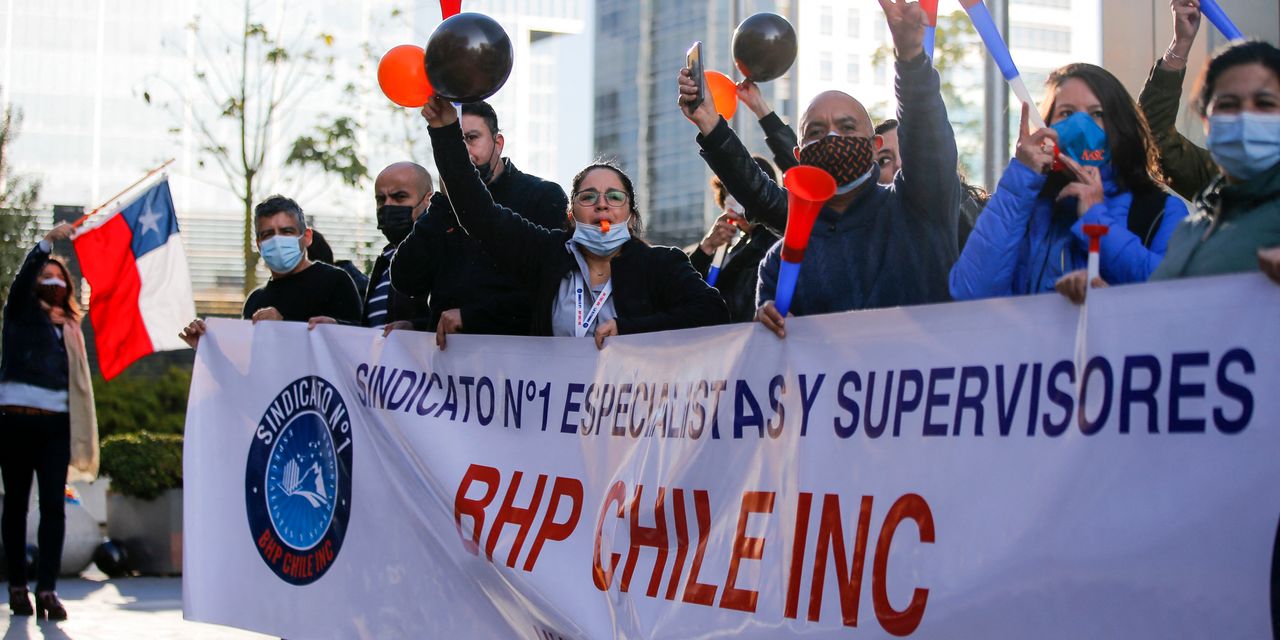The union representing workers at Chile’s La Escondida copper mine said its members voted to reject the most recent contract offer from the mine’s owner and go on strike, potentially risking disruptions to the supply of a key metal as the world’s economy continues to recover from the impact of the coronavirus pandemic.
BHP Group Ltd. -controlled Minera Escondida, located in Chile’s northern Atacama Desert, is the world’s largest copper mine, producing almost 5% of the world’s supply of the metal, which is used to make electrical wiring and motors and in construction, among many other applications.
By law, the miners must continue to work during a period of obligatory mediation by the government for a period of up to 10 days, so a strike isn’t a done deal, according to some analysts. Voting to authorize a strike is often seen across industries as a negotiating tactic.
“Any significant impact on the market and thus prices will depend on whether there is a walkout in 10 days or not,” said Eleni Joannides, an analyst at Wood Mackenzie, a commodities consulting firm, ahead of the vote. Although, “at current prices, Escondida negotiations appear to be built into the market.”
Still, when Escondida workers walked off the job in 2017, they didn’t return for 44 days.













































